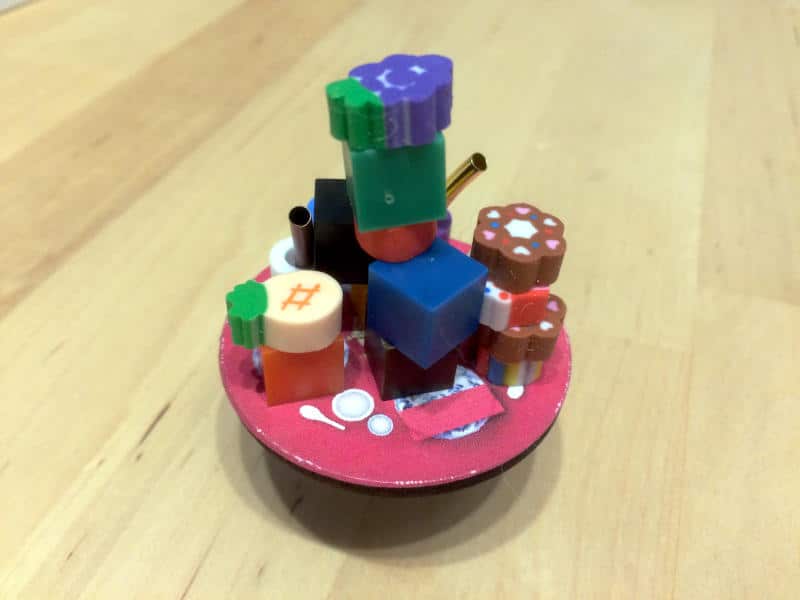I grew up at a time when “cowboys and Indians” were a popular topic in literature. Westerns, spaghetti or otherwise, were on television pretty much all the time. Similarly, Kung Fu films were regularly shown on the small screen. The jungles of India also often featured heavily. Board games often followed the same trend and portrayed these seemingly exotic and alluring themes and settings that appealed to children of my age. Yet, much of what was created was clearly guilty of cultural appropriation. So in this article, I want to look at the trend in our hobby specifically.
Listen to the Audio Version
Intro Music: Bomber (Sting) by Riot (https://www.
Music: “Calmness” by AShamaluevMusic.
Website: https://www.
Of course, just because a game is set in historic China, the Wild West of North America or the jungles of India doesn’t mean it is guilty of cultural appropriation. Cultural appropriation really only takes place when a majority group uses cultural elements of a minority group in an exploitative, disrespectful or stereotypical way. As most games are still designed and published by white men, the first half of the requirement is often fulfilled. Satisfying the last part is where it gets tricky. The lines start to blur a little, even though there are some examples where the line has clearly been crossed.
Winnetou
One game I adored as a child was the roll-and-move Winnetou, based on the popular books by German author Karl May. They were set in the American Old West and featured the fictional Native American Winnetou and his white friend Old Shatterhand. The setting and the thrill of adventure were, understandably, very alluring to me. So being able to relive my favourite characters’ adventures as a board game was similarly appealing and I played it dozens of times.
I didn’t give a moment’s thought to the cultural appropriation that was going on in Karl May‘s books, let alone the game. “Indians” was a catch-all term for every Native American tribe when I grew up. The fact that the author had only ever been to the United States well into his writing career, but happily wrote about the Indigenous people as if he knew them intimately, eluded me. Given I was only 10 when I fell in love with the Winnetou game, I guess it is understandable.
However, that doesn’t detract from the fact that Winnetou is one of those examples that clearly crosses the line. In the game, you are a cowboy travelling from St Louis through the dangerous wilderness to reach the relative safety of Winnetou‘s pueblo. Along the way, you risk being kidnapped by “wild Comanche Indians” who are after your scalp. That’s clearly a very stereotypical and, to put it mildly, disrespectful portrayal of this Native American tribe – and it’s not the only one in the game.
I am sure you can think of other games released in the 1960s, 70s and 80s, that feature some form of cultural appropriation, even if it is based on ignorance and even if the games simply gave the masses what they already consumed through other media.
Past Is Not Passed
Of course, publishers continue to release games that portray elements of cultures that the people working on have no experience of to this day. It makes business sense. Exotic settings are still very appealing to Western eyes and these games sell well. So there are still games about Shoguns and Ninjas, Native Americans and jungle exploration.
Some publishers do the right thing and bring in a consultant to ensure the game’s portrayal of cultures is correct and respectful. Some games are even designed by people from those cultures which makes the resulting game experience even more authentic.
Other games are released that haven’t had any such input, but are still confidently using elements from other cultures as their main selling point. While a game about selling sushi is harmless enough, a game with components that display iconography and symbols inspired by Native American culture, for example, gets closer to the line that shouldn’t be crossed.
Often it is not clear if these games are exploitative, disrespectful or using stereotypes, at least not to my Western eyes. If there is no mention of whether a cultural consultant was employed, I start to have my suspicions though. I wonder whether the game couldn’t have been set somewhere else and worked just as well. I question whether the made-up symbology is only there to create an air of exoticism to draw us in. It is simply suspicious when a certain setting or theme is simply there to appeal to our ingrained senses that are drawn to something unusual and somewhat mystical. It would have been just as good a game if it had steered away from cultural appropriation.

Cultural Appreciation
After all, our hobby has the potential for games that introduce us to different cultures and maybe even teach us something along the way. At the very least, these games could stir our interest in broadening our horizons. If a game portrays a culture correctly and respectfully, then I’m all for it.
It could be something very simple, like one of the expansions for Ticket to Ride. I recently played on the Japan map and was inspired to learn more about the country. I am planning a trip there with my wife at some point in the not-too-distant future. We even want to take evening classes to learn some basic Japanese before we go.
In this day and age it just should no longer be acceptable that we use another culture thoughtlessly, let alone disrespectfully. There are plenty of fictional settings that games can draw on, if they want to transport us into a mystical, exotic world. Any games that use themes and elements from real cultures should at the very least have had the input from a cultural consultant, right from the outset, or ideally were designed by people from that culture.
As consumers, it is up to us to do the right thing and support those games that deserve it. There is such a wide choice of games available that there should be something for everyone. Playing a game about Native Americans, for example, doesn’t have to be educational or focus on the atrocities committed by white colonialists, but it has to be respectful and portray the culture correctly and truthfully.
How About You?
So what do you think about the topic of cultural appropriation in board games? Can you think of any examples of games that are guilty of cultural appropriation? Are there any games that are good models of how to do it right? As always, please share your thoughts and experiences in the comments below.
Keeping the blog running takes time and resources. So if you can chip in, that would be amazing.
Useful Links
- Winnetou game: https://boardgamegeek.
com/ boardgame/ 29236/ winnetou - Karl May Wikipedia entry: https://en.
wikipedia. org/ wiki/ Karl_ May - Ticket to Ride: https://boardgamegeek.
com/ boardgame/ 9209/ ticket-to-ride
Audio Version
Intro Music: Bomber (Sting) by Riot (https://www.
Music: “Calmness” by AShamaluevMusic.
Website: https://www.
Playlist
These are the songs I listened to while I was writing this topic discussion article:






